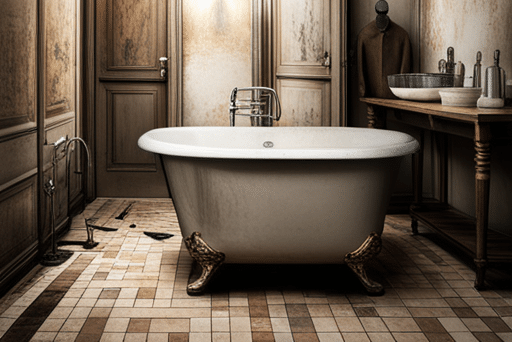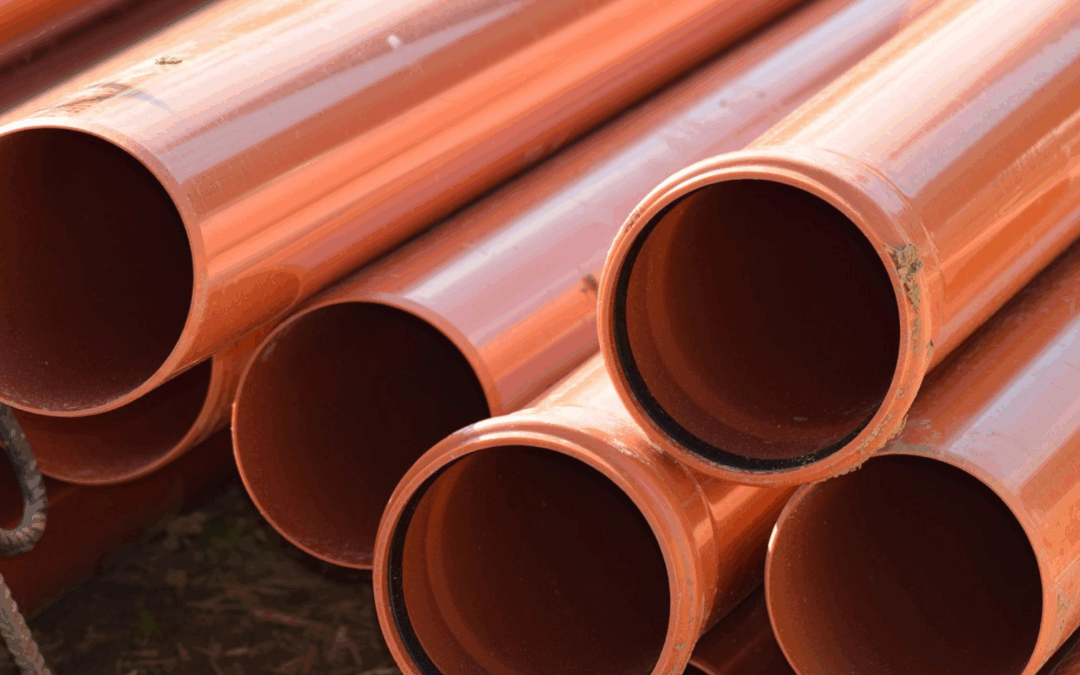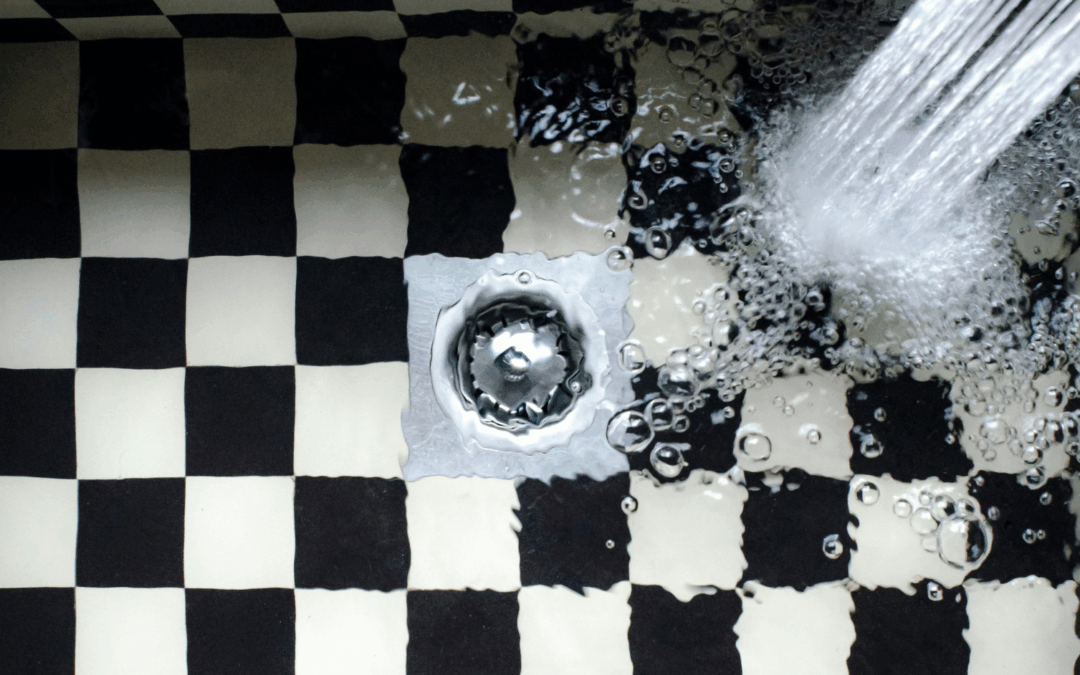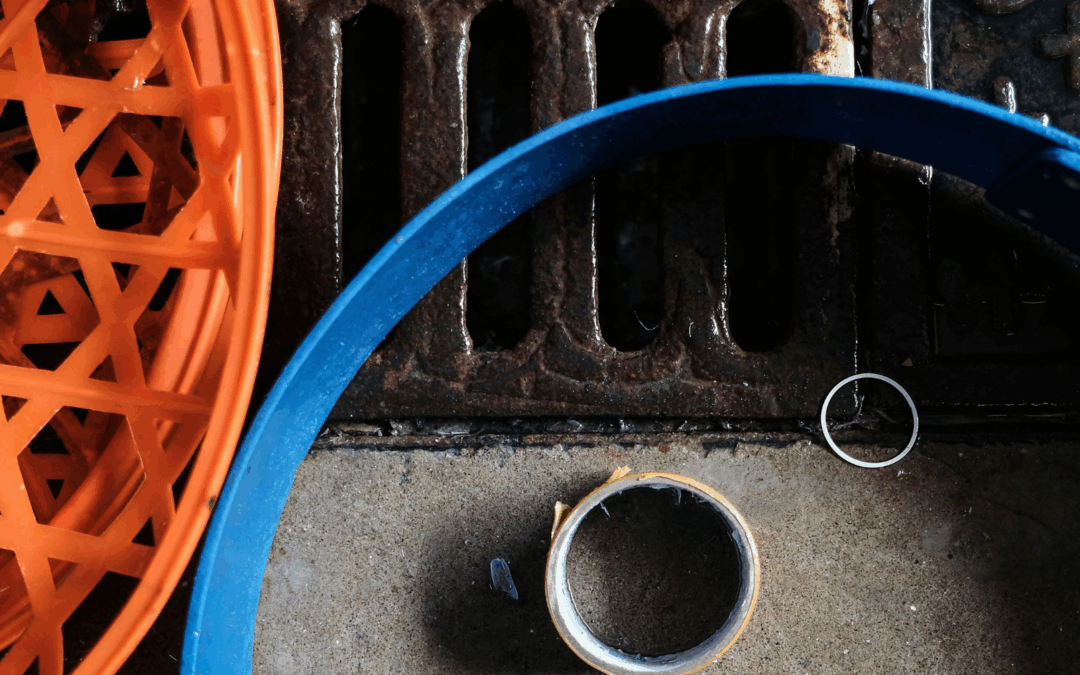Do you often see unsightly residue on your faucets and shower doors even after cleaning them? Chances are you could be dealing with hard water stains. Hard water can be a problem in many homes and can lead to a buildup of minerals and deposits that can be difficult to clean and lead to damage over time. In this blog post, we will explore what hard water stains are, what causes them, and some effective solutions to rid your home of them once and for all.
The Anatomy of Hard Water Stains: What Are Hard Water Stains?
Hard water stains are the bane of anyone who has to deal with them. They’re unsightly, stubborn, and can be difficult to remove. But what exactly are they made of? Lets dive into the chemistry of hard water stains.
To understand hard water stains, we must first understand hard water. Hard water is water that contains high levels of minerals such as calcium and magnesium. These mineral deposits can come from natural sources such as rock formations or from pipes and plumbing systems. When hard water is left to dry on surfaces such as glass or metal, it leaves behind these mineral deposits, which can result in the white, crusty stains that we all know too well.
Schedule Service Online
Get a free estimate so you know what you're signing up for
"*" indicates required fields
For Emergency Services Call: 410-255-9300
The main culprit in hard water stains is calcium carbonate, also known as limestone. When hard water evaporates, the calcium carbonate forms a white, powdery residue that is very difficult to remove. Other minerals commonly found in hard water, such as magnesium and iron, can also contribute to the formation of stains.
While hard water stains are not harmful to our health, they can cause long-term damage to surfaces over time. When left untreated, the minerals in hard water can corrode and weaken plumbing systems and appliances, resulting in costly repairs. Hard water stains can also become permanent, especially on surfaces such as glass, and may require replacement rather than cleaning.
Hard water stains may be annoying, but they don’t have to be a permanent fixture in your home. By understanding what they’re made of and how they form, we can take steps to prevent and remove them.
What Causes Hard Water Stains?
The main cause of hard water stains is, unsurprisingly, hard water. Hard water is water that contains high levels of minerals such as calcium and magnesium. These mineral deposits can cause stains to develop over time if proper cleaning methods aren’t used.
Hard water can be found in many areas, and its severity can be affected by factors such as location and water source.
How To Remove Hard Water Stains From Your Home
Have you ever noticed white, cloudy stains on your fixtures, tiles, or pots? If so, you are probably dealing with hard water. Hard water stains occur when water is high in mineral content, especially calcium and magnesium.
Although hard water is not harmful to your health, it can make your home look dull, unsightly and it can be difficult to get rid of hard water stains. They can also damage your appliances and surfaces over time.
Vinegar
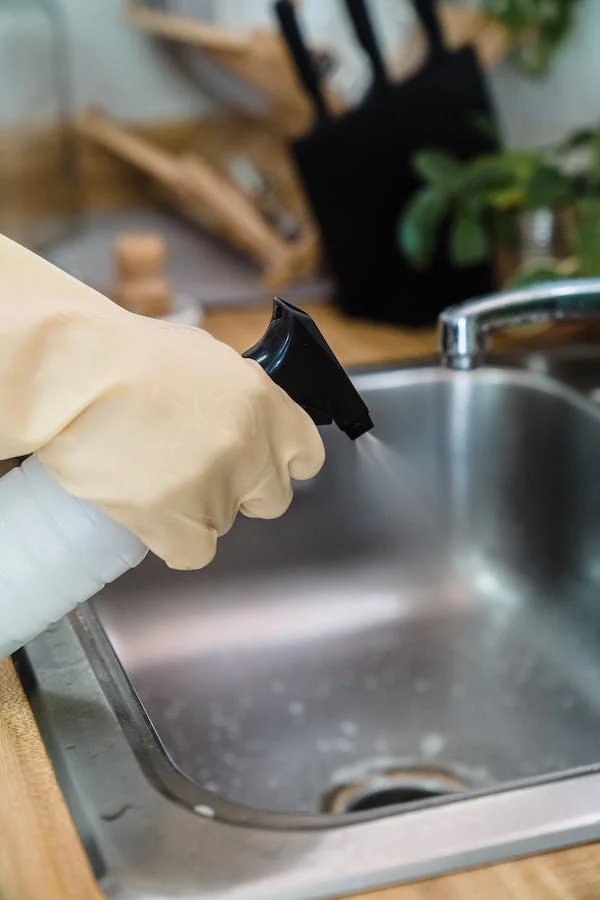
Vinegar is a household staple that has many uses, one of them being to remove hard water stains from glass. Simply mix equal parts of vinegar and water in a spray bottle and apply it to the affected area. Let it sit for a few minutes, then wipe clean with a sponge or brush. Rinse with water and dry with a clean cloth. Vinegar is a natural acid that dissolves calcium and other minerals, leaving your surfaces sparkling clean.
Lemon Juice
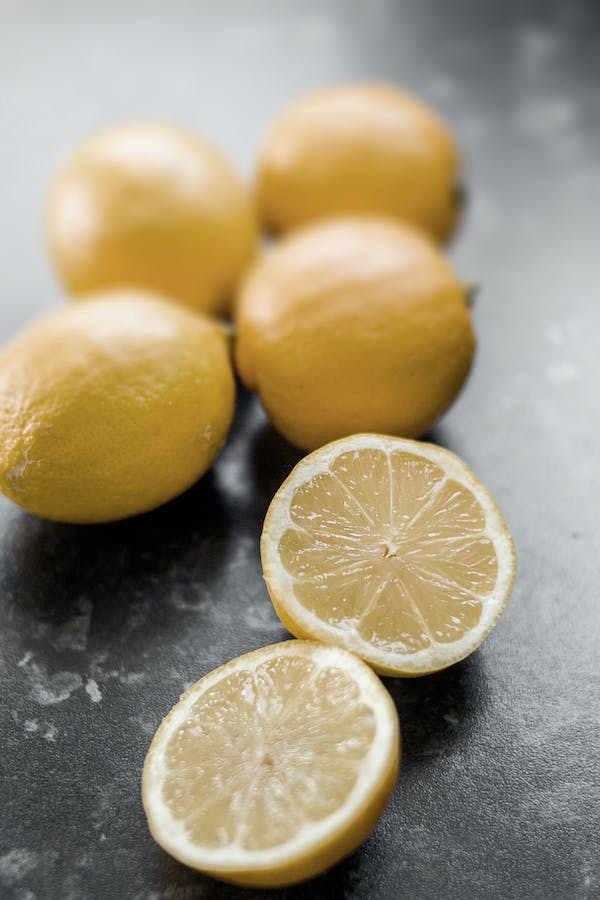
Like vinegar, lemon juice is acidic and can help to remove hard water stains. Cut a lemon in half and rub it on the stained area. Allow the juice to sit for a few minutes before scrubbing with a brush or sponge. Rinse the surface with water and dry with a cloth. Lemon juice is a gentle yet effective way to remove hard water stains from smaller areas, such as faucets, toilet bowls or shower heads.
Baking Soda
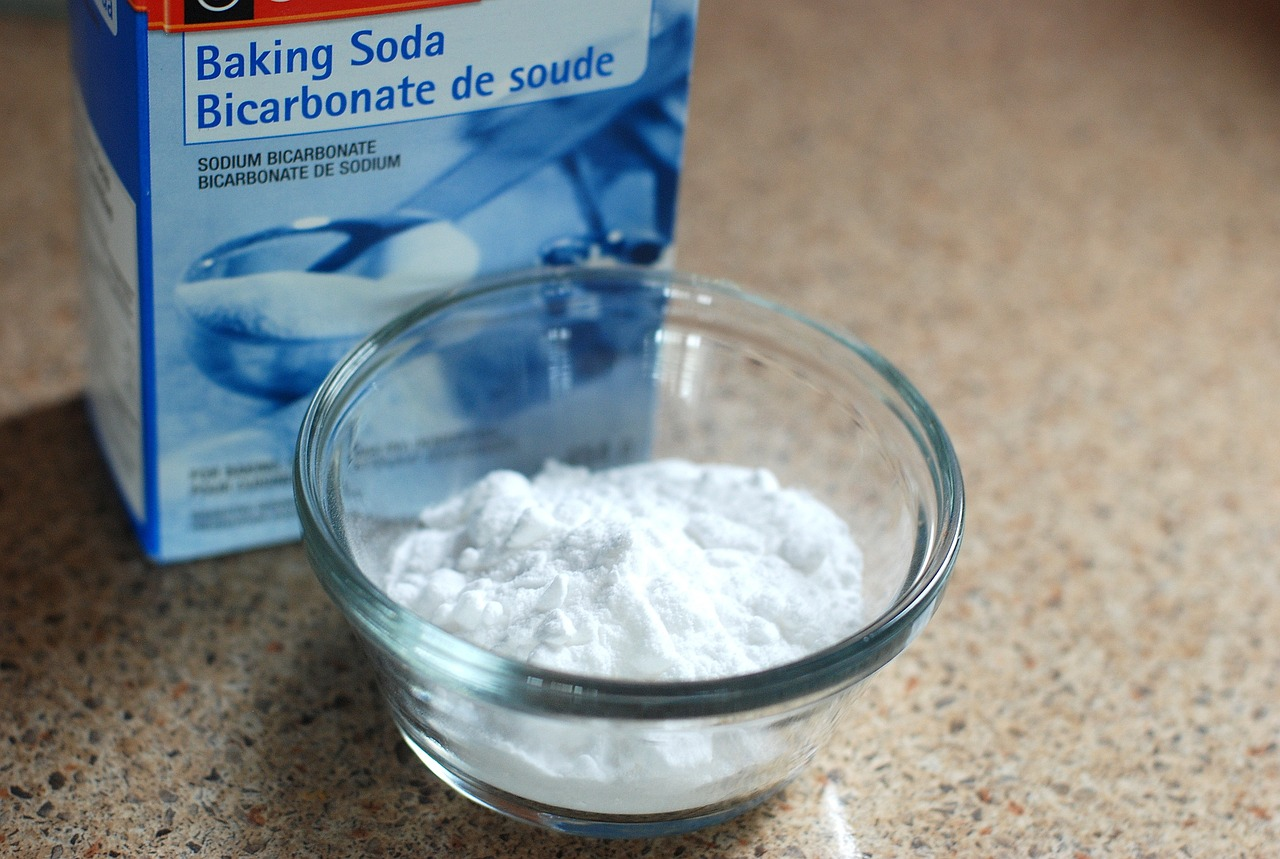
Baking or baking soda paste is another versatile household item that can help to remove hard water stains. Mix baking soda with water to make a paste and apply it to the stained area. Let it sit for a few minutes, then scrub with a brush or sponge. Rinse the surface with water and dry with a cloth. Baking soda is mildly abrasive and can help to scrub away stubborn stains without damaging your surfaces.
Commercial Cleaners

If natural remedies are not effective, you can use commercial cleaners designed specifically for removing hard water stains. Look for products that contain citric acid, sulfamic acid, or hydrochloric acid, as these are effective at dissolving mineral buildup. Follow the instructions on the label carefully and wear protective gloves and eyewear. Rinse the surface thoroughly with water after using a commercial cleaner.
Hard water stains can be frustrating to deal with, but with the right tools and techniques, you can eliminate them from your home. Whether you prefer natural remedies or commercial cleaners, there are many options available to help you remove stubborn hard water stains. By following simple prevention tips, you can keep your home looking fresh and clean for years to come.
How to Prevent Hard Water Stains: Tips and Tricks
Have you ever experienced those frustrating white or brown spots on your kitchen or bathroom surfaces? If you have, you probably already know what I am talking about – hard water stains.
These stains are caused by the accumulation of minerals, such as calcium and magnesium, that are typically found in hard water. While they may seem harmless at first, they can be difficult to remove and can damage your fixtures and appliances over time.
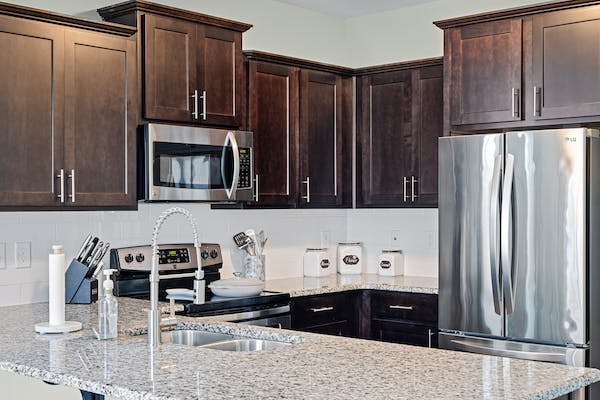
Clean Your Surfaces Regularly
One of the easiest and most effective ways to prevent hard water stains is to clean your surfaces regularly. This will prevent the minerals from building up and reduce the chances of stains forming. Use a mild cleanser and a soft cloth to clean your surfaces, from the toilet bowl to the shower doors and make sure to dry them after you’re done. This will help prevent tough hard water buildup spots from forming as well.
Install A Water Softener
If you have hard water, consider investing in a water softener. A water softener removes the minerals that cause hard water, which in turn helps prevent hard water stains from forming. Water softeners are available in a variety of sizes and price points, so you should be able to find one that fits your budget.
Use Vinegar
Vinegar is an effective natural cleaner that can help with tough to remove stains and hard water stains from glass prevent mineral build up and hard water stains. Mix equal parts vinegar and water, and use this solution to clean your surfaces. The acidity of the vinegar helps dissolve the mineral buildup, preventing it from forming into hard water stains. However, make sure to avoid using vinegar on natural stone surfaces, as it can damage them.
Use Baking Soda
Baking soda is another natural cleaner that can help prevent hard water stains. Mix equal parts baking soda and water, and use this solution to scrub your surfaces. The abrasiveness of the baking soda helps remove any mineral buildup, preventing it from forming into stains. Rinse your surfaces thoroughly after using baking soda, as it can leave a residue.
Dry Your Surfaces
Another effective way to prevent and get rid of hard water stains is to dry your surfaces after each use. This is especially important in areas where water tends to collect, such as the sink or a glass shower door. Use a soft cloth, paper towels, or squeegee to the affected surfaces to remove the excess water, then let the surface air dry completely.
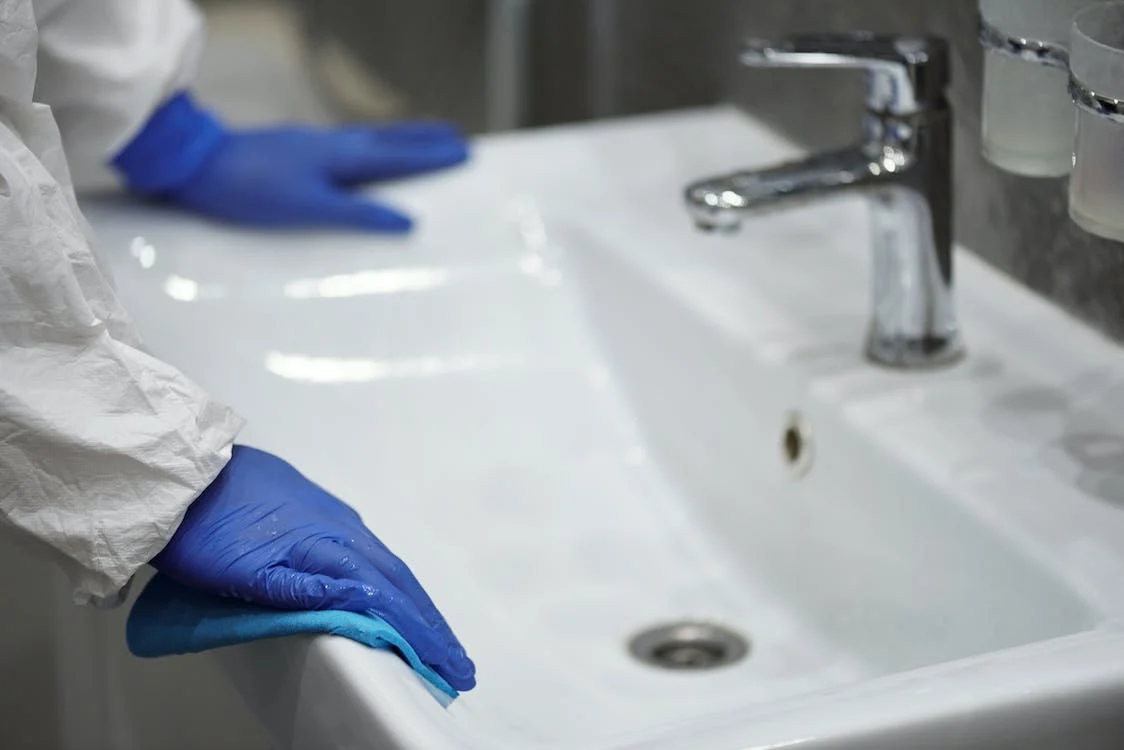
Conclusion
In conclusion, it can be difficult to remove hard water stains and can be unsightly, but with a little effort, you can prevent them from forming in the first place. By cleaning your surfaces regularly, using a water softener, and utilizing natural cleaners like vinegar and baking soda, you can clean hard water stains and keep your home looking spotless. Remember to dry your surfaces gently scrub them thoroughly after each use, and you’ll be able to enjoy a clean and sparkling home for years to come.
MD Sewer & Plumbing understands how stressful and confusing plumbing and sewer issues are, that’s why we are here whenever you need us, day or night. Give our service line a call at 410-255-9300 for 24/7 emergency services!


